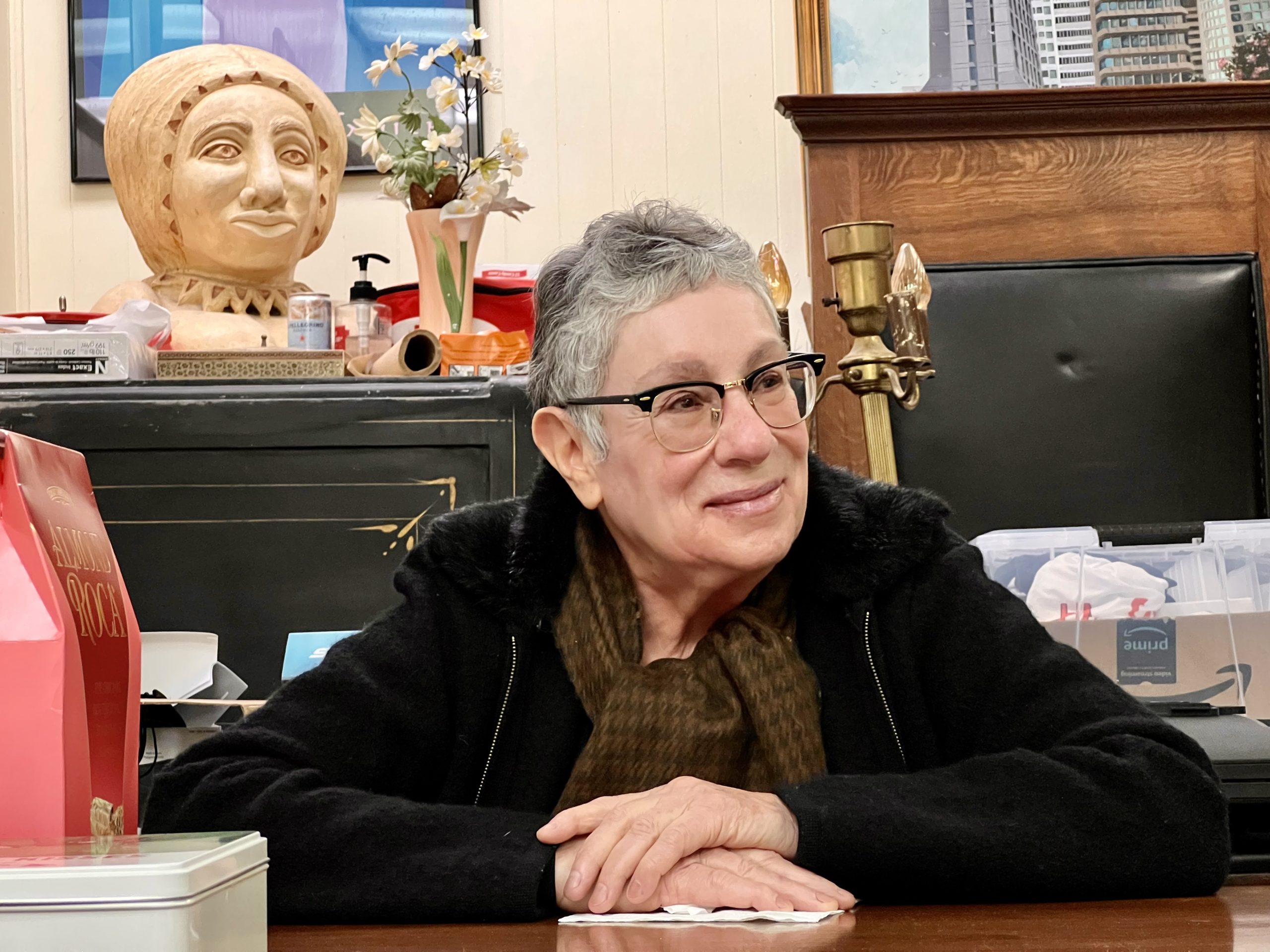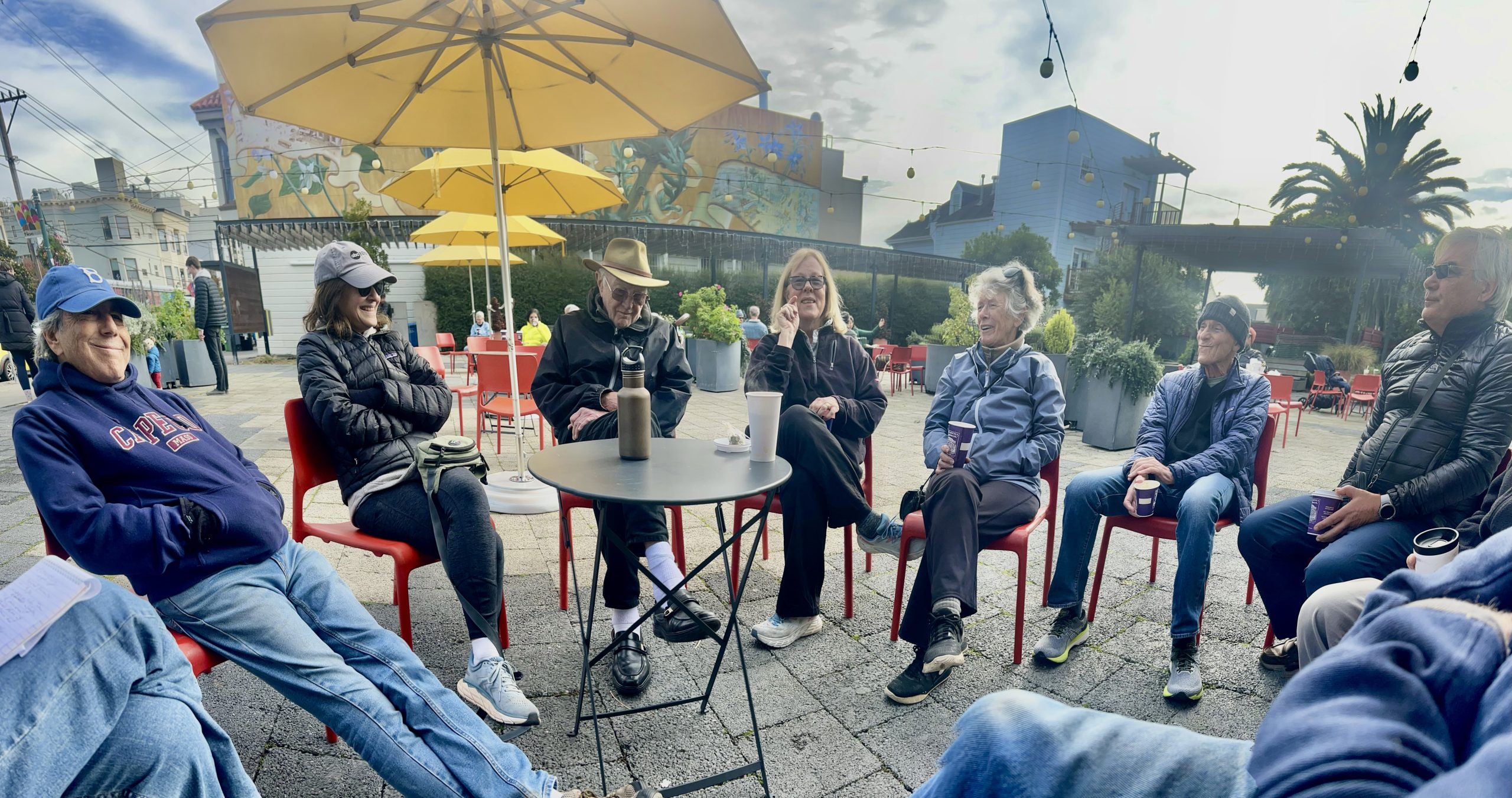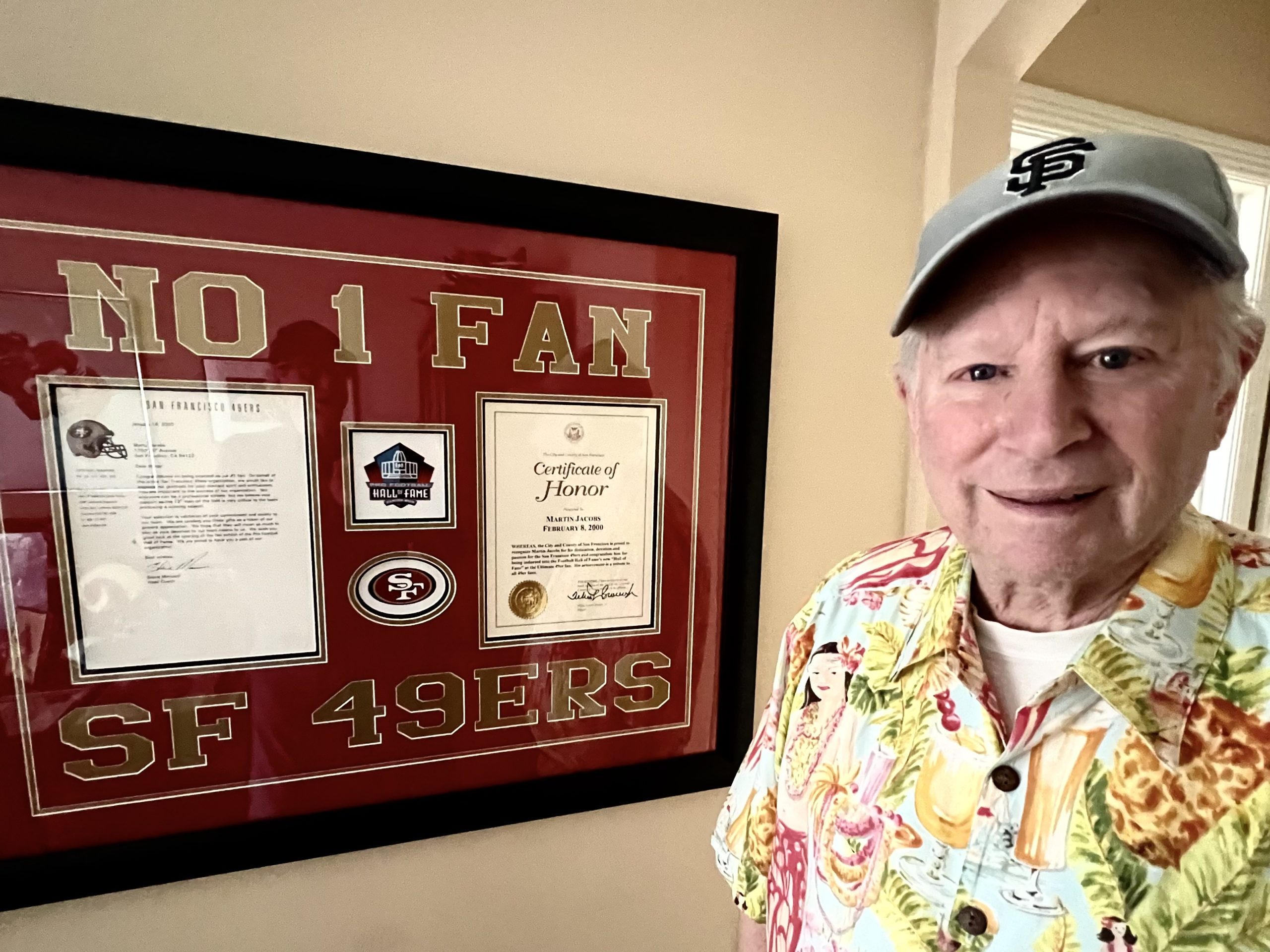Master cobbler does it the old-school way: good prices but paper tickets, cash only – and a bit of chaos that for some customers just adds to the quirky ambience.
It takes a leap of faith to drop your shoes off at Alexander’s on Mission Street, near Valencia.
Nicolas Torres is a master cobbler (the shop is named for his son) proud of his work and with no plans to retire. Many YELP reviews sing his praises as a meticulous craftsman of the old school. But just as many are less than positive, particularly about his, um, organizational skills.
Shoes and boots, heels and shoelaces and strips of leather are jumbled everywhere at Alexander’s Shoe Repair. Wallets, leather bags, belts and luggage all perch precariously on shelves, in tottering piles. Though Torres tags every shoe and meticulously gives clients their half, he sometimes, after finishing a job, misplaces things.
Customers occasionally have to go behind the counter and dig through the chaos to find their refurbished items. Some didn’t like that or the treatment their shoes got, and chose not to go back. But others liked the atmosphere, the prices and were happy with the work. According to one review: “Although service is slow, it is very thorough. Nicolas follows the old school way of running a business. Still writing on paper, still one man working, still cash only, but the upside to this is that it’s very homey and you can ask him to do the impossible.”
Fixing shoes for 50 years
“I love my profession,” said Torres, whose customers call him Zapatero (shoemaker). “I am not perfect, but I try to work so both my clients and I, myself, are content with the finished product.”
Torres has been fixing shoes for more than 50 years. He started in his native Central American city of San Pedro Sula, Honduras. “I grew up in a shoe repair shop, very poor, and by the time I was 18 or so, I already had learned the trade. I always wanted to be independent, to work for myself and not have to depend on others.”

In the mid ’70s, he started visiting relatives in the United States, then went to Mexico City for a year while planning and arranging his return. Why? “Poverty, all around you, poverty. No opportunity to flourish and grow,” he said. “Here, I will never be rich, but I make enough to survive. I have never had to borrow money from banks. I have enough to enjoy my old age, the time I have left. “
The one thing he can’t do is teach is son the trade. He was too busy when Alexander was small, he said. “You have to start when you are small, and now I have no one to replace me. My son chose another direction; he is happy. My wife came in earlier to help out with the customers, but now only me. I like it. I work 20 to 30 hours a week, earlier I worked 50 hours.”
A little help from his landlords
Nicolas has a strong back and not one jot of arthritis in his hands. He has a wide smile and laughs easily. He recalls how he came to be a business owner, no longer an employee:
“In 1990, Alex was born and the landlord of my first space (at 29th and Mission) – may God keep him in his glory and his memory – made it possible for me, gave me a break” – by leasing the space to someone who’d never had his own business before.
He started buying the machines he needed, one by one, and after 30 years he still loves the work. “Sometimes I think I love my work more than my wife,” he chuckled. “No, no, but I am always entertained. Sure, sometimes there are clients who are malcontents, but the great majority appreciate me and thank me for my care and attention. I am tranquil in my life. I don’t worry about what I can’t control.”
That’s fortunate because the pandemic hit his business hard. With so many people working from home, there were fewer shoes to repair. “No downtown dress shoes,’ he said. “No one is dressing up. That’s a big change.”
He was able to stay open due to some rent forgiveness by his landlord, and some very loyal customers. “I am still here because the landlord was not demanding. He said to me, ‘Don’t worry, when you are working again, let’s see when you can pay me.’ “
He also did what he could to adapt and had longtime customers who kept him busy. “So, I do zippers, wallets. I can repair anything of leather, and I’m blessed I have clients from 30 years ago, from when I began.”
He also does a lot of work on shoes for people with disabilities, something that gives him a lot of satisfaction. “I have clients who have post-polio syndrome, and they need their shoes built up, and others who were in car accidents and need their shoes modified. I love doing that.”
And the pandemic wasn’t the first downturn he survived.
Home is here – for good
“Earlier, shoe repair was a great business, but after ‘85, ‘86, the cheap Chinese shoes came flooding the market and the business went down,” he said.
At one point, Torres thought about going back to Honduras. He had land there. But he wouldn’t think of it now. The poverty and violence are so much worse. “I have brothers, cousins, nieces and nephews still there, so I know,” he said. “I’m fine here now.” Besides, he has two other sons and eight grandchildren from an early first marriage who live in the United States, in Salt Lake City.
During a rare moment of rest, he steps outside his door onto the sunny sidewalk and pulls out a chair to sit in the sun. “Soon I will have my 50 years in America, always in the San Francisco Bay Area. I have lived here more than my native land!”
At 75, Torres said, he is not the wild young man he once was. “I love music. I don’t go to bars anymore but I love dancing. I am a pretty good merenguero. (Merengue dancer). We went to Caesar’s Palace before the virus, and I dance at parties.”
But he stressed that he doesn’t need to go to parties to be happy. “My work is my hobby and my passion. Time passes so fast when I am working. And seeing my customers leave, smiling, that is the best feeling, still even to now!”





